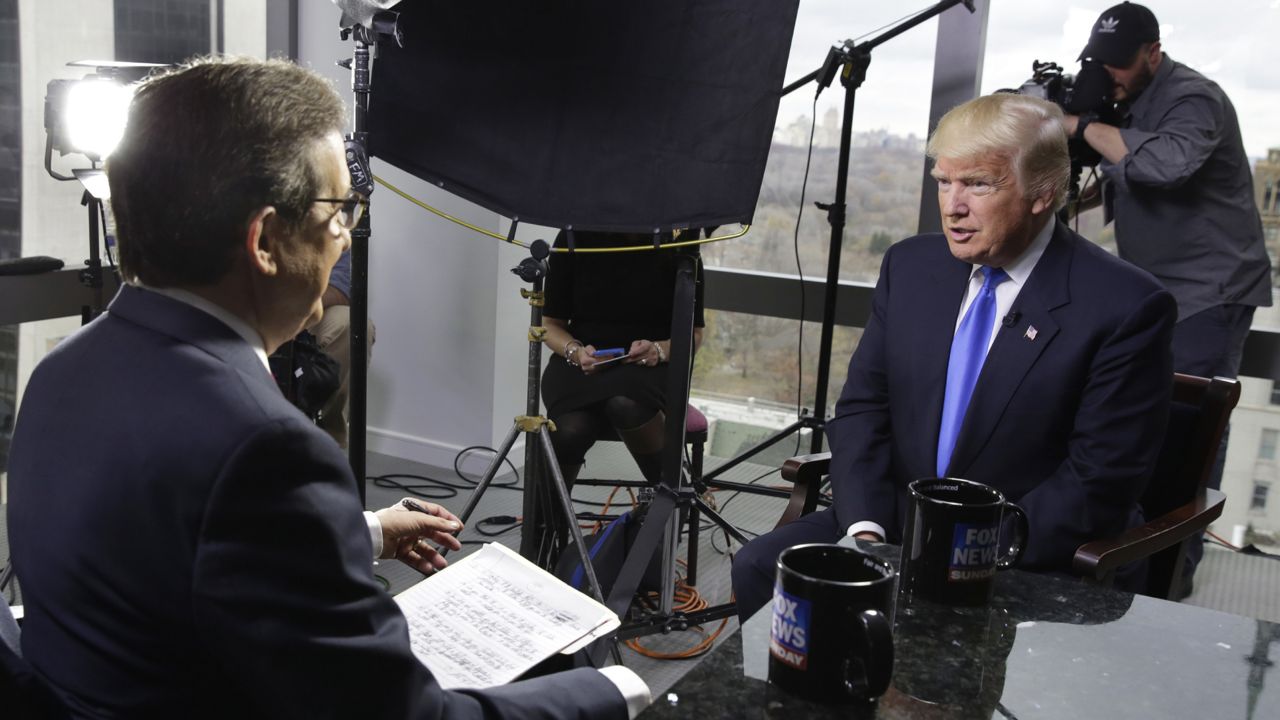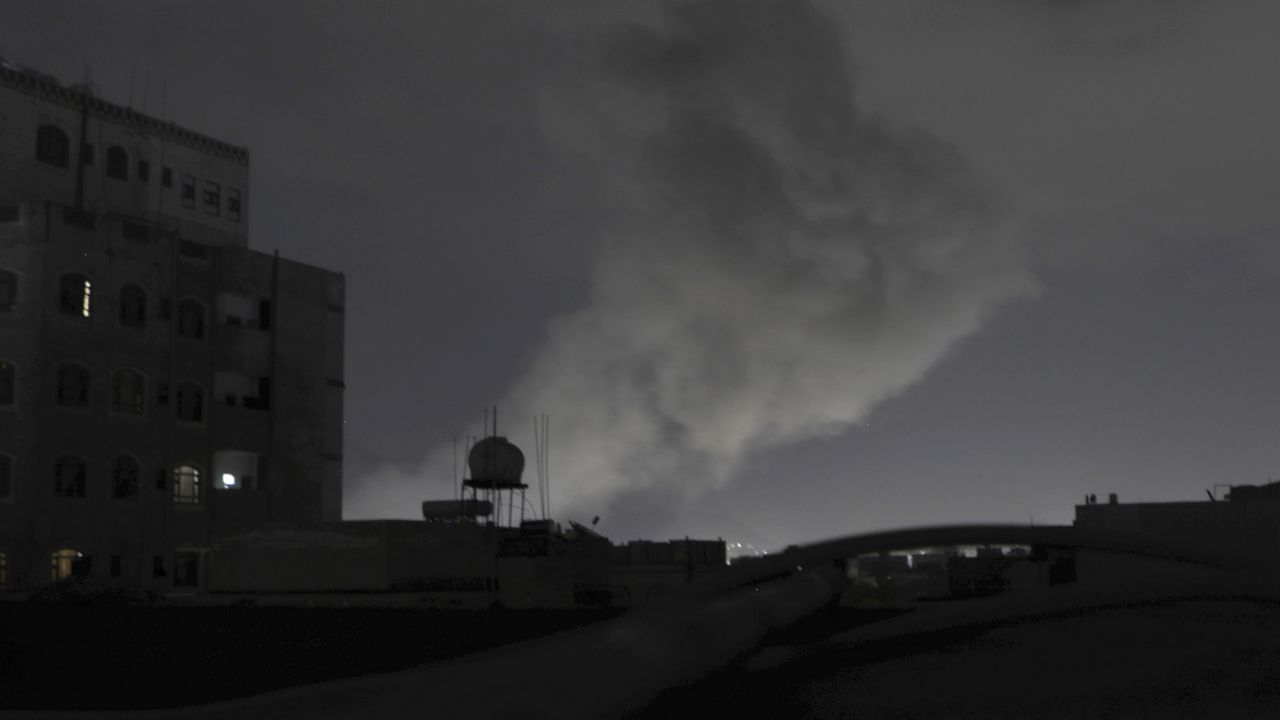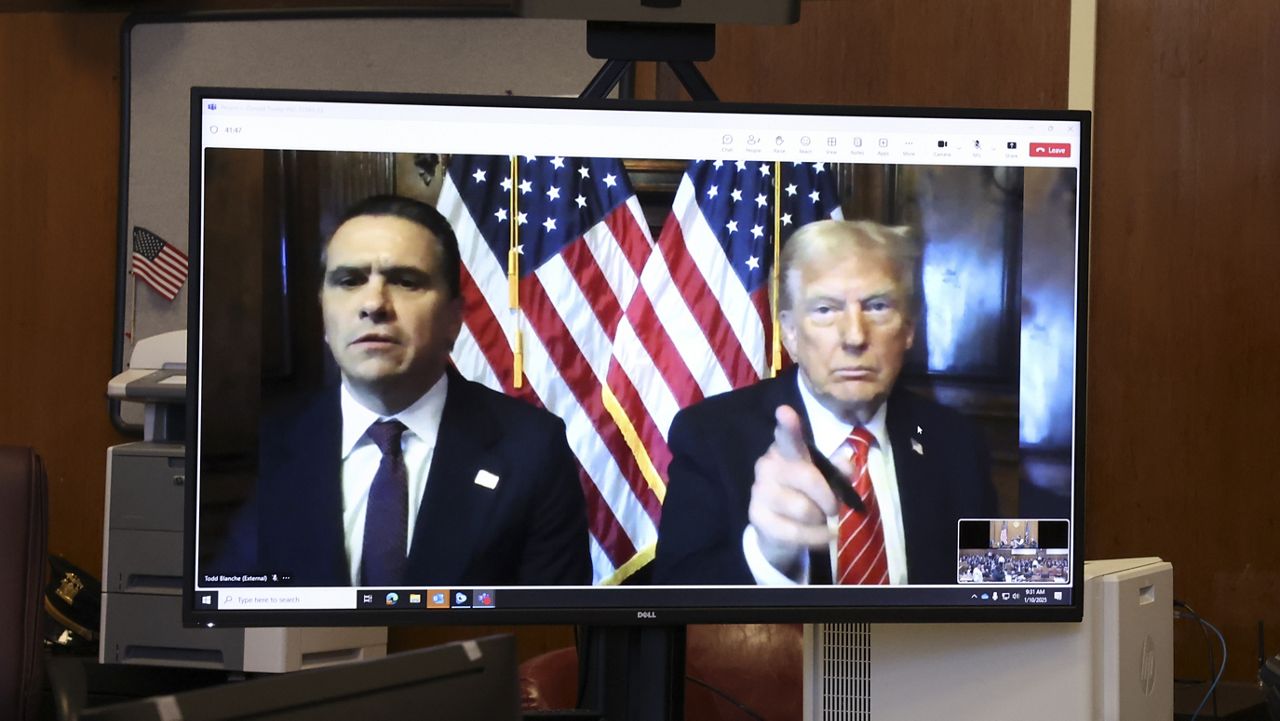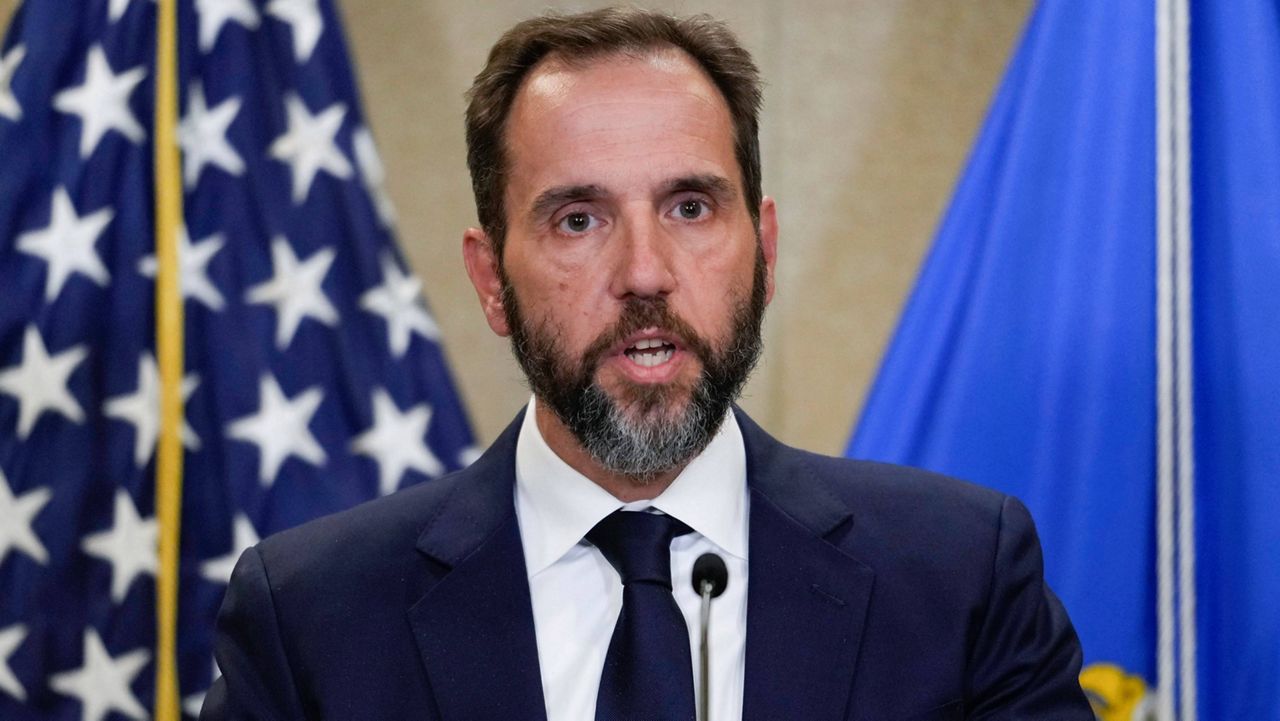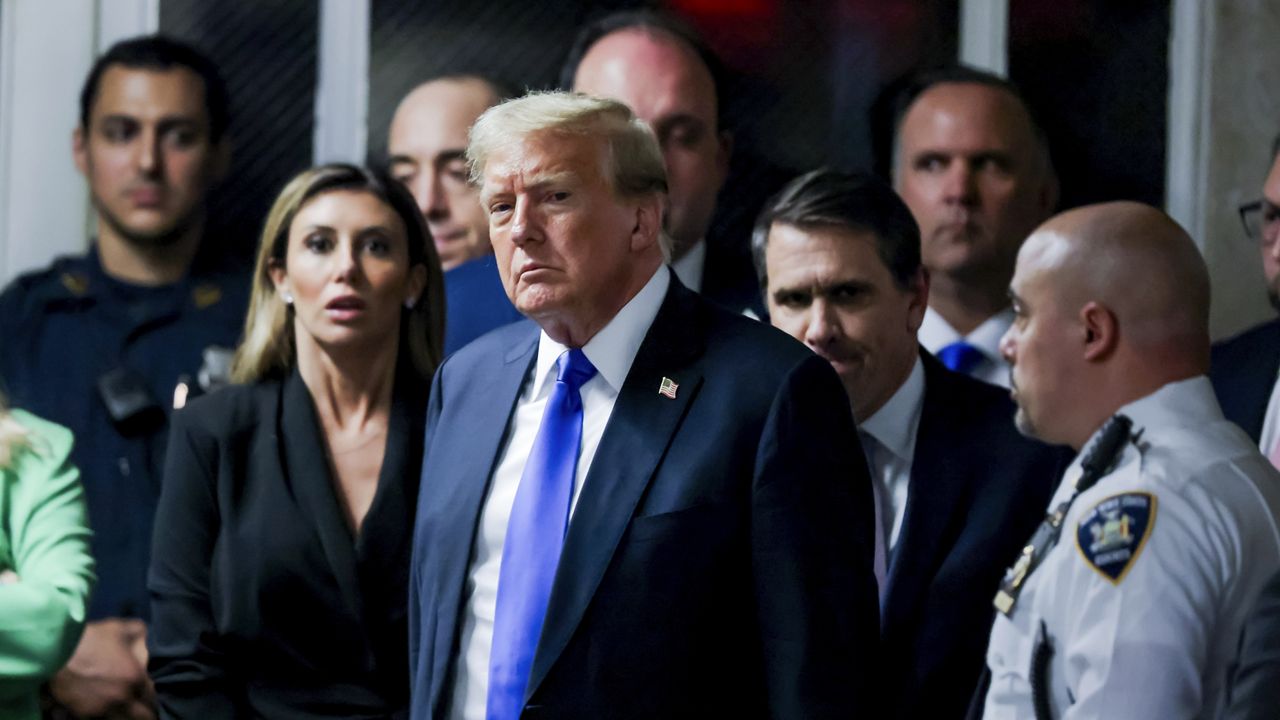CLEVELAND — Chris Wallace, the host of the first presidential debates set to take place on Sept. 29, announced the six topics he will bring to President Donald Trump and former Vice President Joe Biden in just one week’s time.
The candidates will touch on the topics of their records, the Supreme Court, COVID-19, the economy, race and violence in our cities, and the integrity of the election, according to a release from the nonpartisan Commission on Presidential Debates.
The release notes that the topics are subject to change pending the news cycle, and may not be brought up in the same order listed. Each topic will have a dedicated 15 minute segment with no commercial interruption.
The debates will take place at Case Western Reserve University and Cleveland Clinic in Ohio beginning at 9:00 p.m. ET.
Both Biden and Trump have ramped up attacks against their opponent as the November election draws nearer. Both candidates have taken aim at the other for perceived failings of leadership — here’s what they’ve said so far on the topics of the first debate:
Both candidates have jumped at the opportunity to point out their opponent’s past policy decisions, bringing up personal matters where they see fit.
Trump often slams Biden for his son Hunter Biden’s work on a Ukraine oil company during Biden’s tenure as vice president, which Trump says amounts to favoritism.
On Wednesday, two Republican-led Senate committees issued a politically charged report alleging that the work Hunter Biden did in Ukraine constituted a conflict of interest for the Obama administration at a time when Biden was engaged in Ukraine policy as vice president.
But the report said it was ultimately "unclear" what impact Hunter Biden's position on the board of a Ukrainian gas company had on Obama administration policy with regard to Ukraine.
Biden hits Trump for mostly policy-related decisions, but also criticises the president for his rhetoric around racial tensions in the country, saying Trump is “fanning the flames” of violence.
It is unclear exactly what questions the candidates will be asked during this portion of the debate, but both candidates will no doubt double down on some of their previous claims.
Justice Ruth Bader Ginsburg passed away on Sept. 18, opening a seat for a new appointee and igniting a firestorm between Republicans and Democrats on whether the sitting or future president should choose the next member of the nation’s highest court.
Unsurprisingly, President Donald Trump is staunchly in the camp of filling the seat as quickly as possible. On Tuesday morning, the President said that he will name his Supreme Court pick on Saturday. He posted his updated timeline to Twitter after saying Monday that the announcement will come either Friday or Saturday.
The president said over the weekend that he will likely nominate a woman to replace Ginsburg. According to multiple reports, frontrunners are believed to be Amy Coney Barrett and Barbara Lagoa, both of whom are federal appeals court judges.
Even before Ginsburg’s death, the president called on Biden to release a list of potential SCOTUS nominees should a vacancy arise. In a briefing on Sept. 9, the president mused that the reason his opponent likely had yet to release one is because his picks would “be so extremely far left they could never withstand public scrutiny.”
Biden, on the other hand, insisted over the weekend at the National Constitution Center in Philadelphia that publicly announcing a supreme court candidate could “influence that person's decision making as a judge.”
The former vice president has also repeatedly called for the next president to nominate a candidate for the court, citing the decision in 2016 by senate Republicans to block Barack Obama’s nominee Judge Merrick Garland’s confirmation in the leadup to the elections.
"If Donald Trump wins the election, then the Senate should move on his selection and weigh the nominee he chooses fairly," Biden said. "But if I win this election, President Trump's nominee should be withdrawn and as a new president, I should be the one who nominates Justice Ginsburg's successor."
In February, Biden pledged to nominate the first African American woman to the supreme court during a campaign rally.
Biden and Trump have run diametrically opposing campaigns when it comes to the coronavirus pandemic. Biden continuously paints Trump’s handling of the pandemic as a failure and has called into question the political motivations behind the government’s vaccine production, while Trump has mocked Biden for wearing a mask and insists that his opponent is “recklessly endangering lives” with his “anti-vaccine” rhetoric.
In a press conference late last week, the president touted his administration’s ability to deliver a “safe and effective vaccine in record time,” saying the vaccine would be on trucks ready for distribution no more than 24 hours after it had been finalized.
“As soon as a vaccine is approved, my administration will deliver it to the American people immediately,” Trump said at the White House on Sept. 18. “Distribution will begin 24 hours after notice.”
“Hundreds of millions of doses will be available every month and we expect to have enough vaccines for every American by April and again I’ll say even at that later stage, the delivery will go as fast as it comes,” he added.
Biden has frequently called into question whether the president pressured federal health agencies to rush a vaccine ahead of the November election in order to boost his odds at the polls.
“Let me be clear: I trust vaccines, I trust scientists, but I don’t trust Donald Trump, and at this moment, the American people can’t, either,” Biden said during an address last week.
Biden has slammed the president’s handling of the pandemic from the outset. On Tuesday, the U.S. death toll from the coronavirus topped 200,000 Tuesday, by far the highest in the world—and Biden was ready with a new campaign video that used Trump’s own words against him.
“In a rally in Ohio, he said, and I quote, ‘It affects virtually nobody,’” Biden said of Trump’s remarks at a rally in a video on Twitter. “We lost 200,000 moms and dads, sons and daughters, friends and coworkers. And not a single one of them was a ‘nobody.’”
Biden also says that he would implement a national strategy to lessen the spread of the coronavirus on his first day in office should he be elected, stressing that he still sees the need for a national mask mandate.
“I would go to every governor, and I’d go to governors relating to Republican and Democratic governors and I'd say, we have to have this national mandate,” Biden said after meeting with health officials last week. Should the governors not comply, Biden said he would sign an executive order to implement the mandate should he have the authority to do so.
"Our legal team thinks I can do that based upon the degree to which there's a crisis in those states, and how bad things are for the country. And if we don't do it what happens,” Biden said of signing an executive order.
In an ABC News town hall on Sept. 15, Trump was defensive but resisted agitation as he was pressed on his administration's response to the COVID-19 pandemic and why he doesn't more aggressively promote the use of masks to reduce the spread of the disease.
“There are people that don’t think masks are good,” Trump said, though his own Centers for Disease Control and Prevention strongly urges their use.
The event, hosted by ABC News' George Stephanopoulos, was a warmup of sorts before Trump faces Biden in the first presidential debate. Taped at the National Constitution Center in Philadelphia, it featured Trump taking questions from an audience of just 21 voters to comply with state and local coronavirus regulations.
Trump sought to counter his admission to journalist Bob Woodward that he was deliberately “playing it down” when discussing the threat of COVID-19 to Americans earlier this year. Despite audio of his comments being released, Trump said: “Yeah, well, I didn’t downplay it. I actually, in many ways, I up-played it, in terms of action."
“My action was very strong,” Trump added. “I’m not looking to be dishonest. I don’t want people to panic.”
The economy will be an interesting debate topic, as both Biden and Trump claim they will bring jobs back to the U.S., with the president saying he has already done so and will continue to bolster the economy during a second term.
Trump delivered a targeted message to Michigan voters during a campaign rally last week, saying he had brought “so many car plants” to the state during his first term.
While there have been car factories such as the Fiat Chrysler Automobiles plant built in Michigan during Trump’s time in office, the president has had little to nothing to do with their planned construction, according to a 2019 Factcheck report. The president did not specify which factories he was referring to.
Trump painted his opponent, Joe Biden, as loose on trade, telling viewers he had “surrendered your jobs to China” during his tenure as Vice President. The president pointed to Biden’s support of NAFTA and the TPP as reasons why the hardworking people of Michigan should not vote for the former Vice President.
“Joe Biden devoted his career to offshoring Michigan’s jobs, outsourcing Michigan's factories, throwing open your borders, dragging us into endless foreign wars and surrendering our children's future to China and other far-away lands,” Trump said. “Biden supported every disastrous, globalist sellout for over a half a century."
Trump has also touted jobs numbers as evidence that his administration bolstered the economy. In early September, the president said the country is “witnessing the fastest labor market recovery from an economic crisis in history,” soon after the Labor Department announced the creation of nearly 1.4 million jobs in August.
During his own visit to Michigan, Biden pitched himself as the working-people’s president, promising to be a strong ally to union members in the White House.
“Back in July I made the first plank of my agenda a plan to modernize american manufacturing and technology, to ensure that the future is made in America, by all of you.” Biden said at the time.
Biden also used his speech to criticize the current administration’s work on bolstering the economy, saying President Trump has “broken about every promise he’s made to the American worker.” The former Vice President also pitched himself as the working-people’s president, promising to be a strong ally to union members in the White House.
“Back in July I made the first plank of my agenda a plan to modernize american manufacturing and technology, to ensure that the future is made in America, by all of you. Today, I'm announcing some additional steps to make this plank even stronger,” Biden said.
“First, we're going to impose a tax penalty on companies that avoid paying U.S. taxes by offshoring jobs and manufacturing, only to sell those goods back to the American people,” Biden continued to a round of applause.
Biden’s aides believe his focus on the economy and Trump’s handling of the coronavirus pandemic will resonate with key voters nationwide but particularly in states like Michigan, which took one of the sharpest hits nationally from the pandemic.
The unemployment rate in the state spiked at 24% in April, according to the Bureau of Labor Statistics. The statewide rate has since recovered to 8.7%, but Michigan has nearly 414,500 fewer jobs than it did when Trump was inaugurated.
Trump supporters say he has fulfilled his promise of creating jobs and was temporarily sidetracked by the pandemic. But the jobs numbers show that hiring at factories across the Midwest — including in Michigan, Ohio and Wisconsin — began to stall and then decline in the summer of 2019. The Biden campaign sees an opening there to argue that, even before the pandemic, the president failed some of his most loyal blue-collar backers.
Race and violence have become a touchstone topic in the presidential elections in the wake of nationwide protests after George Floyd died at the hands of a Minneapolis police officer. The deaths of Breonna Taylor, Ahmaud Arbery, and the shooting of Jacob Blake contributed to a rise in the protests across the country, with many protesters calling for police departments to be defunded.
President Trump has taken a hard-line stance against Black Lives Matter protesters, often referring to the movement’s members as “thugs” who incite violence.
“The first time I ever heard of Black Lives Matter, I said, ‘that’s a terrible name. It’s so discriminatory,” the president said on Fox News in late August. The president has alternately called the movement a “symbol of hate,” “discriminatory,” “Marxist” and “bad for Black people.”
Trump has positioned himself as the law-and-order candidate, frequently blaming a rise in violence to the spread of Democrat’s ideology.
"If you want a vision of your life under Biden presidency, think of the smoldering ruins in Minneapolis, the violent anarchy of Portland, the bloodstained sidewalks of Chicago, and imagine the mayhem coming to your town and every single town in America," Trump said earlier this month during a visit to Biden’s home state of Pennsylvania.
Despite his disdain for BLM protesters, the president holds a decidedly different stance on Kyle Rittenhouse, the white 17-year-old who allegedly shot and killed several protesters in Kenosha, Wisconsin. Trump said it looked like Rittenhouse “probably would have been killed” had he not acted in self-defense.
Joe Biden has been straddling the political line when it comes to Black Lives Matter protests and calls for defunding police departments. The former vice president has repeatedly said that “most cops are good,” and refuses to defund police departments.
“You know me, you know my heart, you know my story, my family story. Ask yourself, do I look like a radical socialist with a soft spot for riots? Really? I want a safe America,” Biden said in a rally in Pittsburgh earlier this month. “Safe from Covid, safe from crime and looting, safe from racially-motivated violence, safe from bad cops. Let me be crystal clear: Safe from four more years of Donald Trump.”
Biden has also slammed Trump’s message that the country will be less safe with him as president, saying that no one has more to gain from violence than Donald Trump, who he said has long fanned the flames of division across the country.
Still, the former vice president carefully toes the line when talking about protesting and rioting.
“Rioting is not protesting. Looting is not protesting. Setting fires is not protesting. None of this is protesting, it’s lawlessness plain and simple and those who do it should be prosecuted,” Biden said.
“(Trump) may believe mouthing the words ‘law and order’ makes him strong, but his failure to call on his own supporters to stop acting as an armed militia in this country shows how weak he is,” Biden continued. “Does anyone believe there will be less violence in America if Donald Trump is reelected?”
Still, Biden’s campaign has not been without a few race-related gaffes: In May, the candidate told Charlamagne tha God during an interview that “if you have a problem figuring out whether you're for me or Trump, then you ain't black."
Biden has since apologised for his remarks.
One of the president’s most frequent talking points in the leadup to the election is his claim that mail-in ballots will lead to widespread election fraud.
"Mail ballots are a very dangerous thing for this country, because they're cheaters," Trump said during a White House briefing back in April. "They're fraudulent in many cases."
In July, the President suggested in a tweet that the US should “delay the election” until everybody could vote in person.
In a visit to Wisconsin in mid-August, the President said that the only way he would lose the election would be if it was “rigged.”
“Go out and vote. Do those beautiful absentee ballots, or just make sure your vote gets counted. Make sure because the only way we're going to lose this election is if the election is rigged,” Trump told his supporters at the time. “Remember that. It’s the only way we’re going to lose this election, so we have to be very careful.”
The President has ramped up his attacks as more states increase access to mail-in ballots due to the coronavirus pandemic. The Trump campaign and the Republican National Committee are now suing Nevada, New Jersey and Montana for their absentee voting initiatives.
Experts say that there is little evidence of widespread voting fraud due to mail-in ballots.
Colorado, Hawaii, Oregon, Washington and Utah all relied on mail-in ballots in previous elections before the coronavirus pandemic raised concerns about in-person voting.
A study from the nonpartisan Brennan Center for Justice found only 491 instances of mail-in voter fraud between 2000 and 2012—a period when billions of absentee ballots were cast. In 2017, the center ranked the risk of ballot fraud at a miniscule 0.00004% to 0.0009%, based on studies of past elections.
President Trump frequently espouses the dangers of mail-in voting as easily tamperible, which experts widely agree there is little to no evidence to support. In early September, the president mentioned that Democrats would seek to win by sending “unsolicited ballots” to people across the country.
“They're dirty fighters, and the dirtiest fight of all is the issuance of 80 million ballots, unrequested — they’re not requested — they’re just sending 80 million ballots all over the country. 80 million ballots,” Trump said. “Non requested. I call them ‘unsolicited ballots.’ That’s gonna be the dirtiest fight of all. People are gonna get ballots, they’re gonna say ‘what am I doing?’ and then they’re gonna harvest, they’re gonna do all the things — and if you look at the last period of 6 months, take a look at the races where they’ve sent ballots out?”
Biden occasionally hits back at the president’s claims, usually offering opinions from experts on the efficacy of mail-in voting. In August, the former vice president tweeted that mail-in voting is “safe and secure,” pointing out that President Trump himself voted by mail in Florida’s primary.
Biden’s biggest move to date to ensure the integrity of the election is his assembly of a team of top lawyers in anticipation of court challenges to the election process that could ultimately determine who wins the race for the White House.
Biden’s presidential campaign says the legal war room will work to ensure that elections are properly administered and votes correctly counted. It will also seek to combat voter suppression at the polls, identify foreign interference and misinformation, and educate voters on the different methods available for casting ballots.
But beyond the president’s attacks on mail-in voting, Biden’s campaign has been forced to deal with outside actors attempting to influence the election.
On Sept. 10, the United States Department of the Treasury sanctioned Andrii Derkach, a Ukrainian lawmaker with ties to Rudy Giuliani, for being an “active Russian agent” and attempting to interfere in the upcoming presidential election, the department said in a statement.
Derkach and other Russian operatives specifically targeted Biden’s campaign.
“Between May and July 2020, Derkach released edited audio tapes and other unsupported information with the intent to discredit U.S. officials, and he levied unsubstantiated allegations against U.S. and international political figures,” the department’s statement reads in part. “Derkach almost certainly targeted the U.S. voting populace, prominent U.S. persons, and members of the U.S. government, based on his reliance on U.S. platforms, English-language documents and videos, and pro-Russian lobbyists in the United States used to propagate his claims.”
In August, the U.S. National Counterintelligence and Security Center named Derkach as a “pro-Russia” agent working to undermine Biden’s campaign.
“...Pro-Russia Ukrainian parliamentarian Andriy (sic) Derkach is spreading claims about corruption – including through publicizing leaked phone calls – to undermine former Vice President Biden’s candidacy and the Democratic Party,” NCSC Director William Evanina wrote in a press release at the time. “Some Kremlin-linked actors are also seeking to boost President Trump’s candidacy on social media and Russian television.”
The Associated Press contributed to this report.




